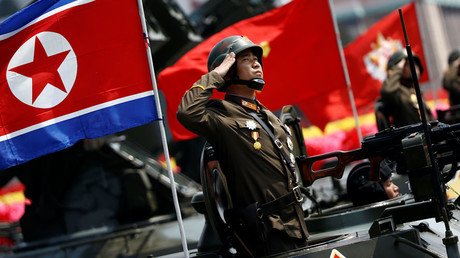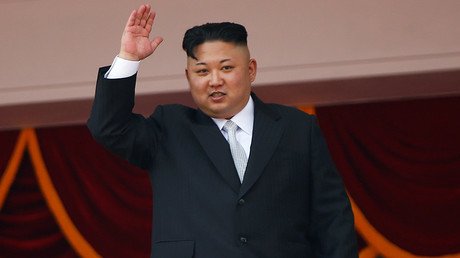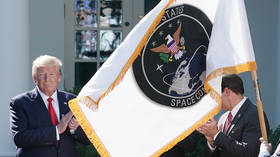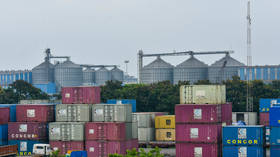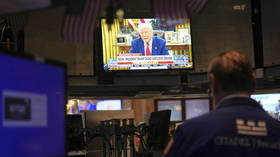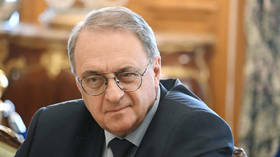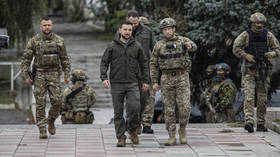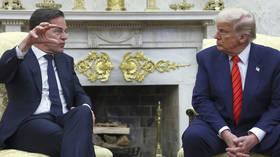N. Korea missile tests: UNSC threatens Pyongyang with sanctions, says launches must stop
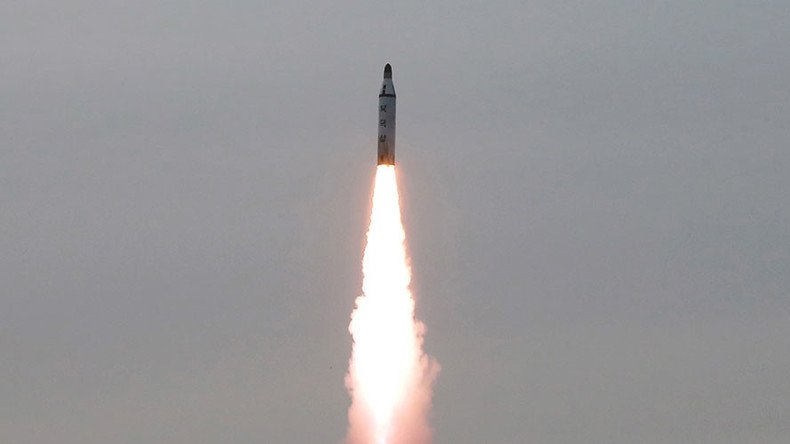
The UN Security Council has warned it may hit North Korea with a new round of sanctions in response to its latest missile launches, which it blamed for stirring up regional tension, and urged Pyongyang to stop its nuclear and ballistic missile activity.
In the wake of North Korea’s medium-range missile launch into the Sea of Japan on Saturday, the UNSC slammed the self-isolated country for “highly destabilizing behavior and flagrant and provocative defiance” it displays by turning a blind eye to multiple UN resolutions expressly prohibiting it from attempting such actions.
Apart from reiterating its commitment to comply with all restrictive measures imposed on North Korea under previous resolutions, the Council hinted it might look at the possibility to tighten the grip on the state’s economy, which is already suffering under a heavy burden of international sanctions.
“The members of the Security Council agreed that the Security Council would continue to closely monitor the situation and take further significant measures including sanctions, in line with the Council’s previously expressed determination,” the statement read.
READ MORE: There can be only political solutions on the Korean peninsula
It went on to call on Pyongyang to phase out its nuclear and missile program and enforce a total ban on nuclear and missile tests, arguing that the development of missile and nuclear weapons is being carried out by Pyongyang at the expense of ordinary people, who “have great unmet need.”
Earlier, the French ambassador to the UN, Francois Delattre, said that the UNSC is looking into a possible expansion of sanctions, promising a “strong” and “swift” retaliation to North Korea’s latest breach of international law.
'Latest North Korean missile launch didn’t pose any threat to Russia' - Defense Ministryhttps://t.co/Se2gw7HzFl
— RT (@RT_com) 15 мая 2017 г.
Whether the threats will materialize into a new round of sanctions is likely to be decided Tuesday, when a closed-door UNSC meeting on North Korea is scheduled to take place.
The newest missile launch was claimed by North Korea as a successful test of a long-range strategic ballistic missile capable of carrying a nuclear warhead. However, the US military disputed the claim, arguing that the projectile was more likely a mid-range missile, than an intercontinental one.
The missile had reportedly covered a distance of 700 kilometers, with its altitude reported by some media outlets to be as high as 2,000 kilometers, before descending into the Sea of Japan, according to South Korean and Japanese militaries’ estimates.
State of paranoia?
Following the launch, one of the most vocal voices in the chorus of those denouncing North Korea and its leader Kin Jong-un was that of the US ambassador to the UN, Nikki Haley, who went as far as to suggest that Kim was “in a state of paranoia” and vowed that Washington would proceed with “tightening the screws” on the pariah state.
In a separate statement, the White House labelled the North Korean weapons program “a flagrant menace for too long,” specifically mentioning an assumed displeasure felt in Moscow at the sight of the missile allegedly striking near its border.
"With the missile impacting so close to Russian soil, in fact – closer to Russia than to Japan – the President cannot imagine that Russia is pleased," the statement said.
The worrying report on the missile landing in the imminent proximity to the Russian border, some 60 miles (97 km) south of the Russian Far East city of Vladivostok, with over 1 million residents, was given by CNN, citing an unnamed US official. The map drawn by the channel shows the alleged point of impact as dangerously close to Russian territory.
The Russian Defense Ministry, however, dismissed the report, stressing that the missile did not pose a threat to Russia, and actually landed in “the central part of the Sea of Japan, some 500km from Russian territory. There are also some doubts about the missile reaching the altitude of 2,000 km (1,245 miles), with aviation expert Ron Bishop from Central Queensland University describing such a potent range non-typical and “a little bit of a stretch” rather than an accurate estimate while speaking to RT. The estimate has largely remained unchallenged in the mainstream media.
Weighing on the latest missile test while in Beijing on Sunday, Russian President Vladimir Putin urged all parties, including those whom he said are “intimidating” North Korea, to drop their alarmist rhetoric and stop saber-rattling, and instead focus on a diplomatic solution to the crisis.
